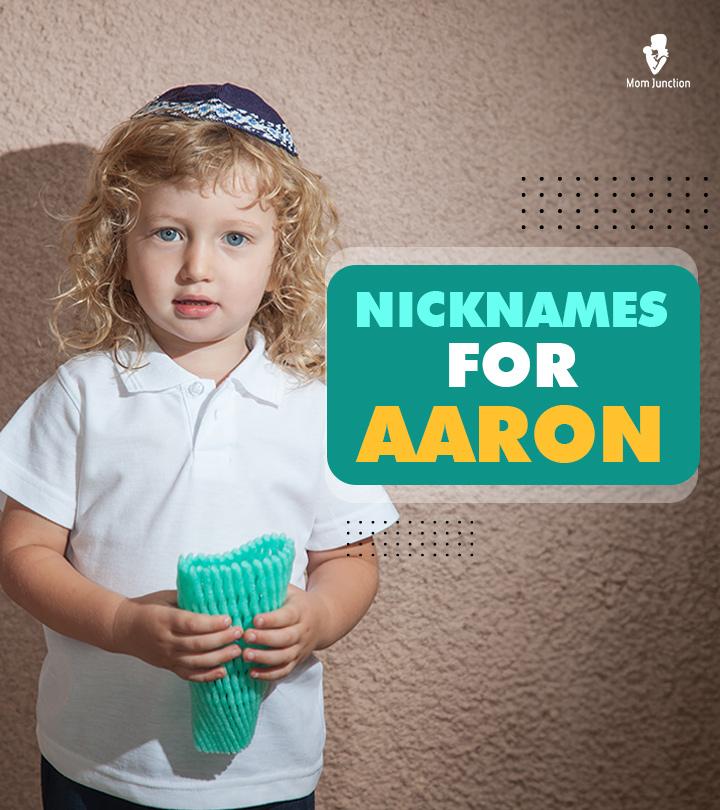When a kid goes from being an only child to having a new baby brother or sister, sibling rivalry can kick in. Even kids who are excited to be a big sibling will need some time to adjust. They now have to share their parents’ attention and time, their space, and even (someday) their toys. This transition period can lead to aggression, regression, jealousy, and sibling rivalry.
As you prepare for baby, you may be asking yourself: How can I stop sibling rivalry with a newborn? How long does it take for siblings to adjust to a new baby? Now take some deep breaths and remind yourself that every child with a new sibling goes through this. With a little patience and grace, your child and baby will be best buds before you know it.
To help ease this tough transition, we’ve got 25 tips on how to prepare your child for a new sibling, how to introduce your kiddo to the new baby, and how to prevent and stop sibling rivalry. For even more help preparing for baby, check out our Guide to the Best Baby and Kid Gear, Toys, and Hacks, including our lists of the best diaper subscriptions and great baby sleep aids.
2. Let Your Child Share the Baby News
Allowing your kid to share the big announcement with friends and family will make them feel special and give them some ownership of the news. They’ll feel a sense of pride when people congratulate them!
3. Read Books About Becoming a Big Sibling
Books are a great tool to foster understanding about having a new sibling. My favorite is Daniel Tiger’s Neighborhood: The Baby is Here by Angela C. Santomero. This book greatly helped my oldest when I was pregnant with my second—we read it every night for a month or more! Other great books include You’re the Biggest by Lucy Trapper and I Am a Big Brother or Sister by Caroline Jayne Church.
RELATED: Baby Shower Favors That Parents Will Actually Love

Enlist your little helper to assist with putting together the nursery.
4. Prepare the Nursery Together
Involve your child in designing the nursery, shopping for furniture and decor, and deciding where to put everything. Have them “help” build the crib alongside you using pretend tools. By doing this as a family, it will build excitement and create the sense that everyone is getting ready to welcome the baby.
5. Put out Baby Gear Ahead of Time
A new baby means lots of gear in the house that your child hasn’t seen in a long time (and probably won’t remember)—a swing, a bassinet, a play mat, etc. Your kiddo may not be thrilled about having to make room for it all. Help them adjust by setting all the baby gear up well in advance so they’ll have time to get used to it. Explain what everything is and how it works, let them touch it, and don’t be surprised if they want to play with it!
6. Explain the Plan for When You Go to the Hospital
It’s important that your child knows who will be watching them while you are at the hospital. Will they be staying at Grandma’s house? Is an aunt or uncle coming to your house? Your child can help pack their bag with special toys or clothes if they’ll be staying at a relative or friend’s house.
7. Buy the Baby a Gift from Your Child
Take your child shopping to pick something out for the new baby. It can be a book they love, a soft toy, a blanket, or something else that feels special to them. Your child will always remember what they gave their new sibling, and when the baby gets older, they’ll know it was a special gift from their big sibling.
RELATED: How to Get Free Baby Stuff: Free Diapers, Formula, Baby Gear, and More

A baby doll can help prepare kids for a real baby—and prevent sibling rivalry.
8. Pretend-Play with Dolls
Dolls are great tools for teaching kids how to care for a baby. Get your child a baby doll and show them how to hold, feed, burp, and change it. This will increase their excitement to help take care of the new baby.
9. Spend One-on-One Time Before the Baby Comes
Spend some special time with your child prior to the baby’s arrival. Take them to some of their favorite places or try some new adventures. You’ll create lasting memories for you and your child to treasure.
How can I introduce my child to the new baby?
10. Decide Where the Introduction Will Take Place
Figure out whether your child will meet the baby at the hospital or at home, and tell your kiddo the plan ahead of time so they know what to expect. If you’re waiting until you get home, FaceTime your child from the hospital so they can see the baby and begin to build their bond right away.
11. Give Your Child a Hug and Kiss First
You and your child haven’t seen each other for a day or more. That is huge to them—and probably to you, too! Be sure to give your child that much-needed hug and kiss as soon as you see them, before the introduction to the baby happens.
12. Don’t Hold the Baby During the Introduction
This was excellent advice given to me by my doctors and friends: Don’t be holding the baby when your older child sees them for the first time. Instead, have the baby in a pack-and-play, a bassinet, or a hospital crib. That will free you up to give your child your full attention, and your kiddo can then walk over and meet their sibling on their own terms.
RELATED: 35+ Baby Registry Lifesavers for New York City Parents

Teach your toddler how to gently approach and touch the new baby.
13. Model Gentle Touch
Encourage your child to touch their new sibling right away, making sure to show how and where to gently touch the baby. If it’s taking some time for your kid to learn gentle touch, use a baby doll for practice.
14. Give Your Child a Gift From the Baby
Just like having your oldest pick out a gift for the baby, give them a gift from their new sibling as well. It could be a toy or book, a special “big sibling” shirt, a stuffed animal, etc. My oldest was thrilled to receive a Paw Patrol toy from his new sibling to add to his collection!
How can I stop sibling rivalry with a newborn?
Now that the baby is home and settling in, here are some ways to help your child adjust and prevent sibling rivalry.
15. Recruit and Accept Help
When friends or ;family members offer to come help with the baby, take them up on it. Similarly, don’t be afraid to ask for help when you need it. You can also hire a part-time nanny or mother’s helper. This will give you time to spend with your older child, as well as time to shower and/or rest so you can be your best self for your family.

Take your kiddo on plenty of solo outings to avoid sibling rivalry.
16. Carve out Special Time for Your Child
Try to dedicate at least 20-30 minutes a day to your older child. This will be easiest while the baby is napping or when help is around. Have your child pick what they would like to do with just you, such as play a board game, read books, or do an art project. If you’re able to leave the house, take them to a favorite place or grab a special treat so there will be no distractions.
17. Talk, Talk, Talk
Have frequent conversations with your child when you’re alone together. Encourage your kid to talk freely about how they are feeling with the adjustment, but don’t press them. The more space you give your child, the more they will open up to you.
18. Stick to a Routine
Nothing can throw a wrench into a routine like sleepless nights and endless feedings. Still, it’s important to stick with your older child’s routine as much as possible. If you always give your kid a bath, read a book, and tuck them in at bedtime, keep doing those things—in that order. Continue with any classes or extracurricular activities your child has, and try to keep mealtimes, nap times, and bedtimes consistent.
19. Wear the Baby
Invest in a baby carrier or wrap that is comfortable. Wear the baby around the house or while out so you’ll have your hands free to engage with your child.
20. Choose Your Words Carefully
Comparisons are a major cause of sibling rivalry, so be sure to never compare your child to the new baby—even if it’s a good comparison is good or bad.
Don’t use the baby as a reason or excuse to say no. Saying things like, “I can’t play because the baby has to eat now,” will only fuel resentment. Instead you could say, “I will play with you in 10 minutes.”
Finally, if your child is showing signs of regression, avoid calling them a “big kid” or calling the baby their “little brother or sister.” This could cause them to further reject their new status and role.
RELATED: 17 Ways to Soothe a Crying Baby

Your child’s pride about helping with the baby will cut down on sibling rivalry.
21. Involve Your Child in the Baby’s Care
Recruit your child to hold the baby’s bottle during a feeding, watch the baby while they’re on their activity mat, help you bathe the baby or change their diaper, etc. If your kiddo is older, they even read the baby a book.
22. Give Your Child Lots of Affection and Praise
It’s very important to have empathy for your child as they adjust to being a new sibling. Pile on the hugs and kisses, and say “I love you” often. Give your child plenty of individual attention. Provide positive reinforcement and recognition for helping with the baby, drawing a great picture, doing well in dance class—whatever it may be. This will show them that they are worthy of your love and praise, too.
23. Expect Some Aggression
If your child hits, pinches, or throws objects at the baby, it’s likely a cry for attention—even if that attention is negative. So try your best not to yell. Instead, make sure the baby is safe, then talk to your child about what they are feeling and why they are acting this way. Discuss why their actions are unacceptable and dangerous. Use time-outs if necessary. Demonstrate gentle and soft play, and don’t leave your child alone with the baby until the aggression has stopped.
24. Be Prepared for Regression
When a child sees a baby getting so much care and attention, it can lead to regression. A potty-trained child may suddenly have accidents. A kid who falls asleep on their own may insist on having a parent lie down with them. A laid-back child may start crying often.
Recognize that these are all cries for attention, so try not to get upset with your child. Just give positive recognition when they’re acting appropriately, and be patient. Usually a child who’s regressing just needs some extra time and space to get back to being themselves.
25. Schedule Playdates for Your Child
Set up lots of playdates for your child with friends or cousins. This will help them blow off steam and step out of their “big sibling” role. Plus, they’ll be thrilled that someone is there just to see them!
RELATED: Best Bath Toys for Toddlers and Babies

Someday there will be plenty of sibling love—we promise!
How long does it take for siblings to adjust to a new baby?
There is no set time frame for a child to adjust to a new sibling, because every child is different. The adjustment period will depend on factors like the child’s age, their temperament, and whether any other big change is taking place (such as a move to a larger home).
The key is to be patient and to give your child time and grace. They may not want to hold the baby or spend time with them right away, and that’s OK. Just do your best to involve your child, stick to their routine, and give them plenty of love and attention. Eventually, every big sibling comes around and grows to accept—and, dare we say, love—their new sibling!
All photos provided by author Kelly Patino

 PARENTING TIPS
PARENTING TIPS







 PREGNANCY
PREGNANCY








 BABY CARE
BABY CARE








 TODDLERS
TODDLERS








 TEENS
TEENS








 HEALTH CARE
HEALTH CARE





 ACTIVITIES & CRAFTS
ACTIVITIES & CRAFTS








 CONTACT
CONTACT ABOUT
ABOUT














